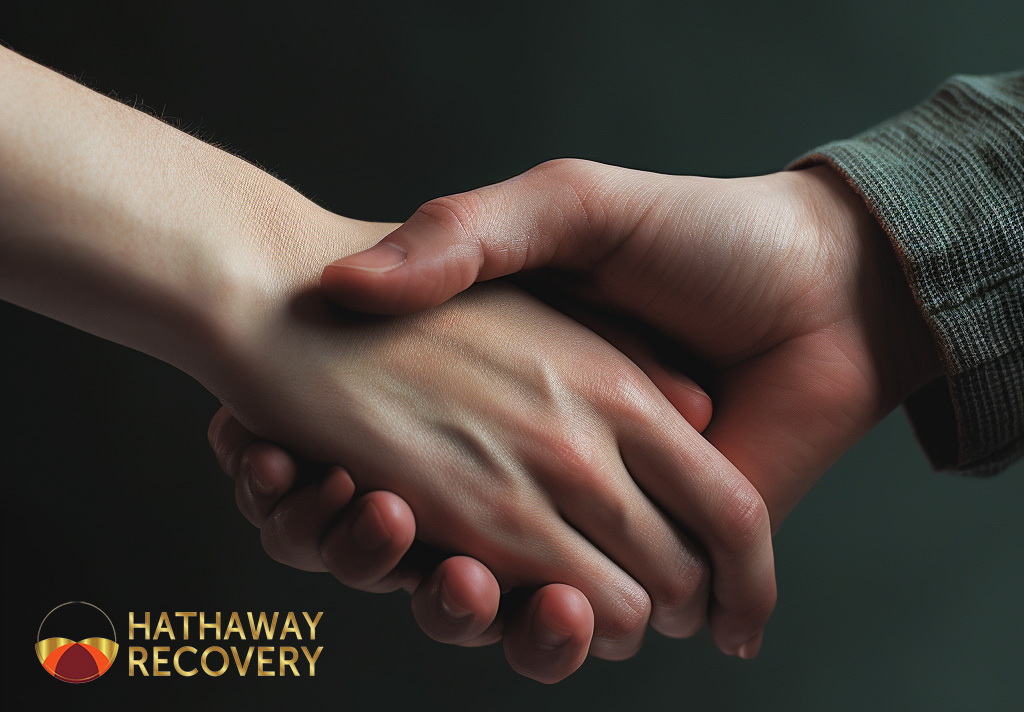Addiction is a problem that affects all of us, not just those who are addicted. Here are ten tips to help family members deal with an addicted loved one.
The statistics show that millions of people struggle with addiction and substance abuse. Nearly all of them have friends and family who support their recovery. Families are a major part of the recovery process. Therefore, spouses, siblings, parents, children, and friends must understand how they can help.
You may have many concerns and questions if you are a family member dealing with an addiction.
- Addiction: How to cope with it
- Supporting your loved one
- Support groups for families of people with addictions

Ten Tips for Families Dealing with an Addict
Even in families with loving members, addiction can strike. Addiction can affect family members and close friends when it develops. In addition to helping your loved one get into a rehab program, family members and close friends should continue to look after their health. You can then provide the support and love the addict needs to heal. Here are ten helpful tips.
1. Learn as much about addiction as you can.
Families can escape the blame game with education. It may be more helpful to learn that addiction does not result from weakness, stubbornness or willfulness but rather stems directly from brain changes. You may find it easier to let go of any anger or resentment that you feel about the addiction of a loved one if you realize addiction isn’t a choice.
Many online resources are available to help families understand addiction. Many bookstores offer books on the chemistry behind addiction and the science of addiction treatment.
Research teams also conduct in-depth drug studies every day. Researchers are learning how drugs interact with brain cells and using this knowledge to develop new treatment options that could one day treat or prevent addiction.
This knowledge can give a family hope. You can gain confidence with each step forward that addiction can be overcome.
2. Connect with like-minded peers.
It is not easy to support or live with someone who is addicted. According to research, addiction in a family member can be a life-stressing situation that lasts for many years. This long-term dysfunction makes it difficult for families and friends to communicate. A family affected by addiction can experience mistrust among all members.
It can be helpful to connect with other families, mainly if they use a well-established and trusted program, such as Al-Anon. These programs are designed to help families who have a loved one with an addiction. These programs also offer a non-judgmental, safe space for family members to learn, talk and cope with addictions in their presence.
One survey revealed that people attend meetings for a variety of reasons. However, many attendees are looking for help.
- Find a better life quality
- You will have fewer issues with the addict
- Stress levels can be reduced
- Improve your mental health
Meetings can help. Feelings of doubt and isolation may diminish by attending a family meeting and listening. Families can also learn the skills to deal with interpersonal issues. These meetings help families deal with an addicted loved one.
3. Attend family therapy sessions.
Many of the negative consequences of substance abuse are felt by spouses, siblings, and parents. People are often reluctant to talk about their behavior, and so don’t. If they are tired of fighting, family members may also distance themselves from their loved ones. When the addiction continues, they may blame themselves or the addict for unhappiness.
This silence and the blame game can prevent a family from seeking help. Families may lack the resources to support someone actively recovering or be too tired to do so.
These programs aim to reduce guilt and distrust by allowing each person to be heard. These programs help family members understand each other and themselves and resolve conflict healthily. Families that were once defined by addiction and anger can become tight-knit groups supporting each other through open communication and healthy boundaries.
It can be tempting to miss a family therapy session, especially if there are many conflicts in the schedules and appointments of families. This work is essential to everyone’s mental health, so you must attend meetings whenever possible.

4. Prepare family meals and enjoy them together.
It’s easy to separate meals in today’s chaotic, modern world. The kids can heat frozen foods while the adults eat a burger at home.
A family meal is a great way to bring everyone together after a stressful, lonely, or upset day. Every meal builds on the work done during family therapy. The ritual of eating together also promotes a sense that everyone is in the same boat.
It doesn’t stop at the dinner table. The benefits can be increased by spending time together preparing the meal or cleaning up afterward. Even one meal per week together can make a difference.
5. Manage expectations.
The sense of hope that everyone experiences when a loved one enters addiction treatment and embarks on a recovery journey can be thrilling. The addiction problem is finally being addressed. Things will eventually get better.
It can be a long process before the patterns and behaviors associated with addiction are changed. It is possible that the person will hold onto old habits or be frustrated by the recovery process. Sometimes, the slow change can lead to disappointment.
Relapses can be particularly demoralizing. Knowing that a relapse is not a failure for the loved one or you can be comforting. Relapse is part of the recovery process for addiction, a chronic illness. Although steps can be taken to prevent a relapse from occurring, recovery is not an event but a journey that includes ups and lows.
You and your family members should also manage your expectations. Relationships take time to heal. Families in early recovery will make mistakes and may not be at their best, but they can still enjoy time together and support each other. Even if the situation isn’t perfect, working towards a drug-free lifestyle can be meaningful.
6. Keep in touch with your joy.
It’s easier to manage expectations when each person is responsible for his or her happiness. This means that every family member must take some time to relax and do something fulfilling. You could do the following:
- Playing an Instrument
- Nature photography
- Volunteering with Animals
- Playing with Children
- Gardening
- Cooking
- Crafts
These and other activities can help participants feel good, maintain a sense of worth and efficacy, and boost their mental health.
Research has shown, for example, that knitting benefits psychological well-being. Knitters experience calmness and happiness. Knitting can be a great way to relieve stress for people who are dealing with the addiction of a loved one.
7. Get regular exercise.
Even though a morning run or a swim at the end of the workday may not appeal to everyone, these sessions can have many benefits. Exercise is proven to reduce depression and stress.
The brain releases so-called pleasure chemicals, such as dopamine and Oxytocin, when muscles are stretched and tendons are pushed. High-energy exercise sessions can help families release their stress and worries healthily. They won’t hurt others or leave scars. They can run instead of screaming. Yoga is an excellent alternative to pacing. Yoga is a great way to keep on track with your healing, and it’s easy to start.
8. Follow a sleep/wake routine.
Some of the most dangerous addictive behaviors occur at night. Addicts may meet dealers, overdose, or stumble home after parties, or they can get into situations involving family members. So it’s unsurprising that some families in recovery struggle to sleep. Some parts of their brains wait for the next nighttime emergency to occur.
Sleep loss is linked to a slower recovery. Studies show, for example, that sleep deprivation can lead to social and emotional issues, such as depression, anxiety, withdrawal from social situations, and lack of motivation. A consistent sleep schedule will help you function at your best and deal with the challenges of having a loved one with addiction.
9. Book private therapy sessions.
Addictions can leave deep scars, and seeking professional help can often be beneficial. According to research, families with addicted members experience higher levels of anxiety and depression. Caregivers can become exhausted from everything they are asked to do to help their family members and may lack healthy coping techniques. Children or siblings may feel left out or need to perform better to compensate for the addiction. This can lead to low self-esteem.
No one is being judged or blamed here. A private therapy session provides a safe environment for stressed family members to discuss and work out issues openly.
In private sessions, caregivers are taught how to handle destructive thoughts and behaviors developed over years of addiction. The caregivers might learn to meditate to deal with stress or work on assertiveness. They could do group work on anger management or learn to let go of codependent behavior so they don’t feel guilty for others’ poor choices.
Personal therapy takes time, and homework is often required between sessions. This time has many benefits. These sessions can help family members find the strength to help others.
10. Educate, advocate, and defend.
Addiction is a subject that has been misunderstood in many ways. Some people see addiction as a sign of weakness and are not afraid to express their opinions, even casually. Others believe that family members must either help or ignore addiction. When a family tries to help a loved one, it is sometimes labeled as “enabling.”
Families are often the most affected by harsh words and careless remarks from their friends, coworkers, or distant relatives. In an environment such as this, it’s challenging to remain positive. However, families can help make a difference. They can spread the truth about addiction whenever they hear such a phrase. They can use the information they have gained from their private research, therapy sessions, and support groups to teach their friends how to speak in a less stigmatizing way.
Advocating for people who are struggling with addiction takes courage. This is also an important, empowering, and health-affirming act. Families who speak out are improving things rather than remaining silent or fuming. These conversations can have a positive impact on the family and their community.

Families of Addicts: Additional Resources and Support
Families with an addiction do not have to go through recovery on their own. Hathaway Recovery is an excellent treatment center supporting individuals and their families. Our treatment teams have developed a series of programs for families of patients. These include family weekends, where family members can attend educational courses about addiction.
The support of family and friends is essential to a successful recovery. Friends and family who are informed and care for their mental and physical well-being will be better able to support their loved ones and help them on their way to lifelong recovery.
We value your privacy and comfort. You will feel relaxed in our luxurious and state-of-the-art facilities. Hathaway Recovery has a professional and compassionate team ready to assist you.
We offer private rooms, individual attention, and treatment programs.
Contact the Admissions Department at (909) 971-3333 if you have any questions.
The information is entirely confidential.
Don’t miss the chance to better your life.
- Counseling Individuals
- Group counseling
- Family Drug Education
- Relapse Prevention Therapy
- Counseling for Grief






